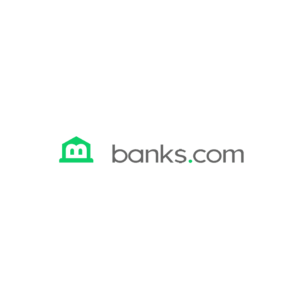As you explore buying a home, you are likely being introduced to the jargon of home loans. FHA loans could be on top of the list. But is it worth it to get an FHA loan? Why do buyers not want FHA loans? Get answers to these questions and more in this guide on FHA loans.
What is an FHA Loan and How Does It Work?
If you’re asking what an FHA loan is, you’re probably wondering how it works. Named for the Federal Housing Administration (FHA), which insures them, FHA loans are insured by the government to make homeownership more accessible to more Americans. Originally offered only to first-time home buyers, FHA loans are available to a wider range of buyers. There’s a lower down payment and fewer restrictions in terms of qualifications for FHA loans. That flexibility in loan qualifications helps more buyers become homeowners. Still, if you have more money saved for a down payment or have an excellent credit score, you may decide an FHA loan is not for you. That’s where it’s helpful to have these pros and cons of FHA loans to help you.
Pros of an FHA Loan
There are many advantages to financing your home purchase with an FHA loan. First, let’s look at the pros of such a transaction.
Lenient Credit Requirements
Since FHA loans are available with lenient credit requirements, you don’t need a good credit score to qualify for one. You might be a first-time home buyer who hasn’t built up a long-term credit history. Perhaps you have encountered some financial circumstances that have had a negative impact on your credit score. While a conventional loan may be impossible at this time, you can qualify for an FHA loan with a credit score lower than 600 on a scale of 300 to 850. Your credit score could be even lower if you have a 10% down payment for an FHA loan.
Low Down Payment
What many home buyers like about FHA loans is the low down payment. Having 10% or 20% of the cost of a home saved as a down payment is a serious obstacle to overcome. That lump sum of cash can be a barrier to home ownership. Banks and credit unions that offer conventional loans might require a 20% down payment, depending on your credit score and other factors. With an FHA loan, the minimum down payment is 3.5% of the purchase price. Of course, you can put down more than that and still get an FHA loan, but that is not necessary.
Low DTI Requirements
When you hear about low DTI requirements for an FHA loan, that’s shorthand for your debt-to-income ratio. Your DTI compares your income to your debt on a monthly basis. It’s a calculation that lenders use to determine if you can handle the addition of a monthly mortgage payment to your budget. To calculate your DTI, divide your monthly debt payments (credit card bills, car payments, college loans, other debts) by your monthly gross income (before deductions for taxes and benefits). That equation gives you a number that is your debt-to-income ratio as a percentage. For conventional home loans, lenders will require your DTI to be lower than it needs to be to qualify for an FHA loan. Your lender can help you understand how your DTI positions you for the type of mortgage you want.
No Income Limits
There are no income limits for an FHA loan. That means there is no minimum or maximum you can earn before qualifying for an FHA loan. However, other requirements do apply, such as a minimum credit score and debt-to-income ratio, or DTI.
Flexible Loan Terms
FHA loans have flexible loan terms because they are intended for a wider range of home buyers who otherwise wouldn’t qualify. Your FHA loan will come in 15- or 30-year terms with a fixed interest rate. You also have flexibility with your credit score and down payment.
Competitive Mortgage Rates
FHA loans offer competitive mortgage rates. In fact, you will find that FHA interest rates are usually lower than interest rates for a conventional mortgage loan. In addition, since FHA loans are intended to help home buyers who may not qualify with low credit scores or low down payments, the interest rate is competitive, too.
Low Closing Costs
Though closing costs are a fact of life when it comes to a mortgage, you may have lower closing costs with an FHA loan than you would with other types of mortgages. Closing costs are the fees charged by the lender and others involved in the loan process, such as the title company and the appraiser. The fees include the upfront mortgage insurance premiums. Closing costs vary by state, by the lender, and by the price of the home you are buying. You will get an estimate when your application is approved and then a final closing cost disclosure right before closing.
Lesser Wait After Bankruptcy
If you are recovering from bankruptcy, you may be eligible for an FHA loan just one year after the discharge of a Chapter 7 bankruptcy. It could depend on the circumstances of your bankruptcy. Guidelines for Chapter 13 bankruptcy vary from one to two years, although some lenders require at least two years.
Loans are Assumable
FHA loans are assumable, which means you can purchase a home by taking over the seller’s mortgage. One reason for an assumable FHA mortgage is that you can take advantage of a lower interest rate from the existing mortgage if rates have gone up since the original purchase.
Cons of an FHA Loan
Where there are pros to FHA loans, there are also cons to FHA loans. Here are several disadvantages of FHA loans that you should consider when shopping for a mortgage.
Borrowing Limits and Loan Maximums
With the added flexibility of FHA loans come borrowing limits and loan maximums. This is how lenders hedge against the risk of loaning the cost of the home to buyers who may not have good credit or a significant down payment saved. The loan ceiling, or the maximum amount you can borrow, will vary depending on where you live and the cost of housing in your area.
Mortgage Insurance Premiums
Another way lenders protect themselves when offering FHA loans is by requiring mortgage insurance premiums. If you default on your mortgage for any reason, the lender doesn’t lose out completely. FHA loans require both an upfront mortgage insurance premium paid at closing and also annual MIPs from borrowers, no matter how much of a down payment you make. If you do make a down payment greater than 10% of the purchase price, you can remove private mortgage insurance in year 11 of the loan. Of course, you could also pay mortgage insurance premiums on a conventional home loan, so it is not only for FHA loans.
Less Attractive Offers
In a competitive housing market, you want your offer to be appealing to the seller. However, if they know you are financing with an FHA loan, they may decide yours is a less attractive offer and it’s not worth the risk and choose to sell their home to another buyer.
Lenders Could be More Cautious
Lenders could be more cautious about offering you an FHA loan if you have bad credit or don’t have money saved for a sizeable down payment. Banks, credit unions and other financial institutions take on the risk of default with every loan they provide. So it’s understandable that they are cautious. The good news is that there are alternative lenders that are more willing to work with home buyers who may not have good credit scores.
Stricter Property Standards
To qualify for an FHA loan, the property must meet stricter standards for safety, security and soundness. That means you can’t get an FHA loan for a home that isn’t safe or has structural problems. These stricter standards for FHA loans protect both the lender in the event that a buyer defaults on the loan and it protects the buyer from having costly repair bills as soon as they buy the home. It’s for these reasons that an appraisal will be part of the process.
It Can’t Be Used to Buy a Second/Vacation Home
If you are considering another home, an FHA loan can’t be used to buy a second home or vacation home. You will need to secure alternative funding for the property. Fortunately, there is a wide range of options for you to consider if you qualify.
It Can’t be used to Buy Investment Properties
FHA loans also can’t be used to buy investment properties. You may be looking at apartment buildings, duplexes, commercial real estate or other types of investment property that could generate an income stream for you. There are other types of mortgage loans for an investment property, so you will be able to get the financing you need if you qualify. The down payment for an investment property is usually higher than for a primary residence.
You Can End Up Paying More in the Long Term
With private mortgage insurance required every month with an FHA loan, you can end up paying more in the long term than you would with a conventional loan or other mortgages.
Are FHA Loans Better than Conventional Loans?
If you are still wondering if FHA loans are better than conventional loans, you aren’t alone. It boils down to what you want in a home, and whether you have the down payment and good credit score, lenders will require for a conventional loan. FHA loans have a long history of providing home buyers with exactly what they need to achieve their goal of home ownership.







